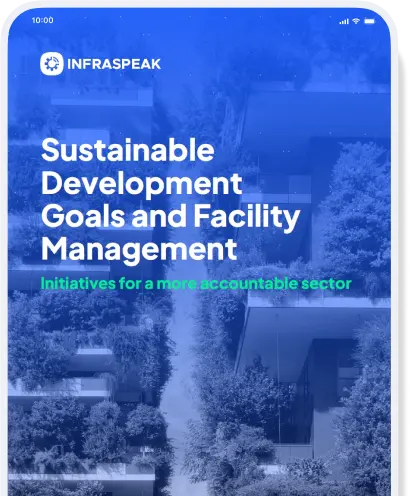Advances in technology, shifting consumer expectations, and global sustainability goals are reshaping how hotels, resorts, and other establishments operate. From the integration of artificial intelligence to the growing demand for wellness-focused experiences, these changes are poised to redefine guest interactions and operational strategies.
At the same time, the industry faces persistent hurdles, such as labor shortages, rising operational costs, and the complexities of meeting diverse guest preferences. Balancing innovation with resilience will be key for hospitality providers aiming to thrive in 2025.
Seamless, contactless technologies
Contactless technology is at the forefront of hospitality innovation, reshaping how guests interact with services. Mobile apps allow for streamlined check-ins, digital room keys, and contactless payments, providing convenience and reducing touchpoints. IoT-enabled smart rooms offer personalised controls for lighting, temperature, and entertainment, enhancing the overall guest experience.
These advancements are crucial for meeting modern travelers’ expectations of convenience and hygiene. However, integrating such systems demands robust IT infrastructure and careful management of cybersecurity risks to protect guest data.
Surprisingly – taking into consideration that hotels deal with quite sensitive data – cybersecurity hasn’t really been tackled in the hospitality industry but, according to PwC’s Hotel Outlook report (2018-2022), hospitality has the second-highest number of cybersecurity breaches — only behind the retail sector, if you’re curious.
Even big hotel chains, like Hilton and Marriot, have experienced extensive credit card data breaches. But better late than never! 2025 sounds like a good year to work on your hotel’s cybersecurity. Stop using legacy systems and implement software that’s regularly updated, has a strong firewall, and helps customers avoid phishing attacks.
Sustainability as a major decision factor
Hotels are focusing on green practices, such as energy-efficient lighting, smart climate control, and reduced use of single-use plastics. Many establishments are sourcing locally to minimize their carbon footprint while supporting regional economies. Green certifications like LEED and Green Key are becoming key marketing tools to attract eco-conscious guests. However, implementing these measures requires significant financial and logistical efforts, particularly for smaller operators. Balancing these investments with operational needs remains a challenge for the industry.
The Global Destination Sustainability Movement Index is growing in importance, the next FITUR arguaby the largest Tourism event in Europe – will be focused on sustainability and surveys clearly show that sustainability is a concern for most travellers, although 43% of them say that they rarely or never manage to travel sustainably.

Artificial Intelligence (AI) Integration
Artificial intelligence is playing a transformative role in the hospitality sector, shaping personalised guest experiences and improving operational efficiency. Hotels are using AI to analyse guest behavior, offering tailored recommendations for dining, room settings, and activities. Chatbots and virtual assistants streamline customer interactions by handling inquiries, bookings, and complaints around the clock.
AI-driven predictive analytics are being adopted to optimise pricing strategies, allocate staff effectively, and ensure proactive equipment maintenance. These advancements are enhancing customer satisfaction and operational reliability, though their adoption requires significant initial investment and training for staff.
It’s all about the experience
“It’s not about the end, it’s the journey”. Well, it’s not about the destination, it’s the experience. Experiential holidays are one of the biggest trends in tourism, and many people are choosing “experiences” and “retreats”, often supporting local businesses, over mass tourism. Previously, only luxury hotels used to cater to the “experience niche”, presenting themselves as an experience on their own.
But “experiences” have since been democratised by dozens of platforms that connect travellers with locals, like withlocals.com, showaround.com or even AirBnB experiences. Online experiences, launched during the pandemic, were AirBnB’s fastest-growing product to date. Experiences bookings themselves increased nearly 7 times from 2017 and 2018.
A recent survey by Skift, AirBnB reminds us, said that “69% of respondents would rather spend more money on better activities than in a nicer hotel room (31%)”. Almost the same percentage said they “want to come back having experienced something new” (65%) and only 35% said they wanted to come back “feeling rested and recharged”.
If your hotel is too focused on location, it may be a challenge to adjust to these experience-seeking guests. But it’s not too late to join the bandwagon, and you can partner with local guides and other local businesses to help them discover, enjoy, and experience their destination to the fullest. Help them build the memories they’ll treasure for life!
Even for conferences and meetings, you should be able to offer innovative tools to impress your clients and make those corporate experiences memorable with the right event management software.
Upskilling as the new hiring
The current labor shortage crisis and the trend of quiet quitting are costing all sorts of companies money in increased wages and salaries, as well as supply chain disruptions. To avoid overpaying and ensure a good fit with new hires, many companies, including the ones in the hospitality sector, are choosing to upskill or reskill their current teams.
Many hotels are adopting automation to handle repetitive tasks, reducing their reliance on large workforces. Efforts to address this challenge include improving employee benefits, offering competitive wages, and investing in staff training to increase retention. Nonetheless, creating a balance between human and automated services that maintains the personalised touch of hospitality is critical.
Rising operational costs
Inflation and increasing costs of food, labor, and energy are putting pressure on hospitality businesses. To combat this, hotels are turning to energy-efficient technologies and innovative revenue strategies, such as converting underused spaces into co-working areas or event venues. While these measures can help offset costs, they require significant upfront investment and careful execution to ensure long-term benefits.

